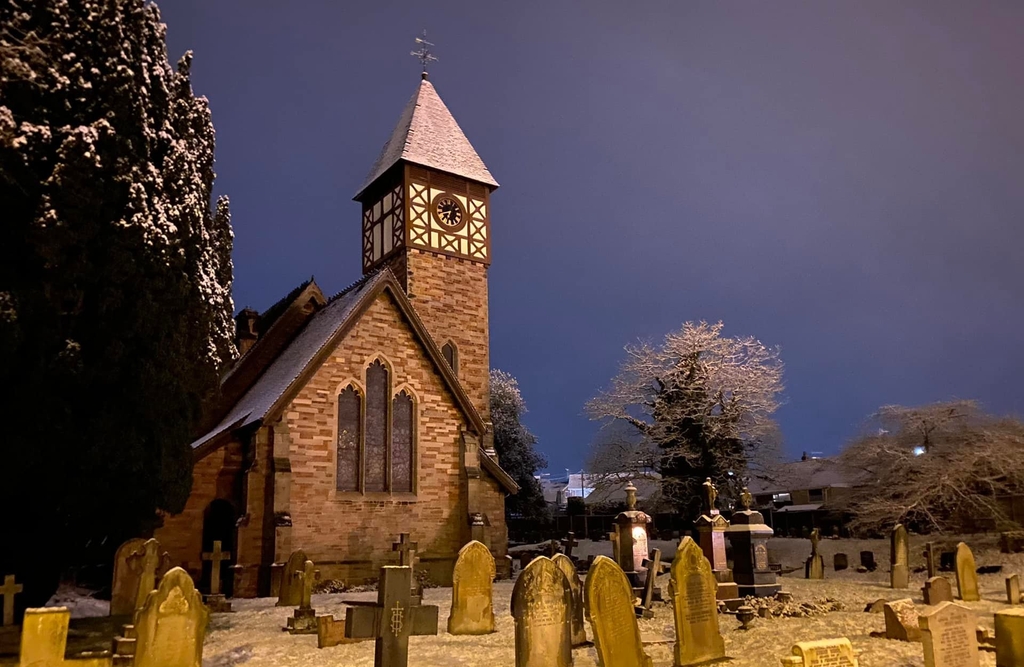Palm Sunday is a strange day for Christians and for those who ask, 'What do all these events mean? How do you make any sense of it to be able to believe any of it?'
For many days before Palm Sunday, Jesus has been telling his disciples that he is going to be killed soon. At first, he hints at it and they don't get it. Later, he starts telling them more and as we get close to Good Friday, he is very, very clear.
Yet on Palm Sunday, you wouldn't think that he, his followers or the general public had a care in the world as Jesus rides into Jerusalem on the back of some kind of borrowed horse/donkey, with the public cheering him and throwing palm leaves in his way in adulation. It must have felt like being a film star arriving on the red carpet.
Of course, the audience was about as fickle as the ones at those movie premieres. Within the week, many of them had turned into the baying mob that screamed at Pilate, the Roman military governor, to crucify Jesus and not to release him, even though Pilate said that he didn't find him guilty of anything.
Now it hadn't been many years before that the Jews had revolted against the Romans and had been suppressed with massive loss of life. Pilate may have had his soldiers and his palace in Jerusalem but the city was packed with people full of religious emotion for the Passover, the peak of Jewish feasts. It must have been a tinderbox and Pilate knew what might happen if he made an enemy of the mob; his soldiers were outnumbered.
But on Palm Sunday, that was all in the future. What is certain is that Jesus was making what seems to have been a rare visit to the city, knowing that it was not only the Roman seat of power but also the location of the Temple and of the Jewish religious rulers who had been plotting to kill him for many months. They were waiting their moment, frightened of Jesus's popularity with the public. Now their opportunity was coming, as Jesus had known and told his disciples.
Perhaps there is yet another lesson for us today and that is how quickly the public mood can turn and how quickly it can be manipulated by those in power and in the media. Sometimes the worst cases are where those in political power own the media or vice versa. We are certainly seeing that played out in the UK and elsewhere. Six months ago, when deaths from Covid were lower than today, we were all being kept in fear of the disease. The press coverage was continuous. Four months ago, the Covid coverage almost stopped and the government's illegal partying became the daily chant in the press and on tv, with everyone having a view.
Two months ago, government lawbreaking and a still massive daily death rate from Covid stopped being covered. Both those things still existed, of course, but the media and politicians directed us elsewhere. We are now all familiar with the names of villages and cities in the Ukraine and are becoming expert in anti-tank weapons much as a previous generation could identify a Sea Harrier or a Chinook at a glance.
There are people who seek to manipulate us as easily and in the same way as everyone always has been. That is why the Russian government has an army of people churning out material on social media 24/7 and has had for many years. They know that wars are not won just on a battlefield. They are won when doubt exists in their enemy's public.
That is also why we see jingoistic slogans across our papers and why, unfortunately, western politicians have started seeking photo opportunities with the Ukrainian president once they thought their skins would be safe whilst doing so. 😊
So when we look at the events of Holy Week and how quickly people turned on Jesus, to the extent of wanting a man killed that most of them would never have met or heard, we should think very carefully of our own positions and of how easily we might be swayed, without our even noticing. Evil stalked those times and stalks our times too. Let us pray for guidance, wisdom and discernment, taking our lead from Jesus, who urged us to love one another. Amen.

















